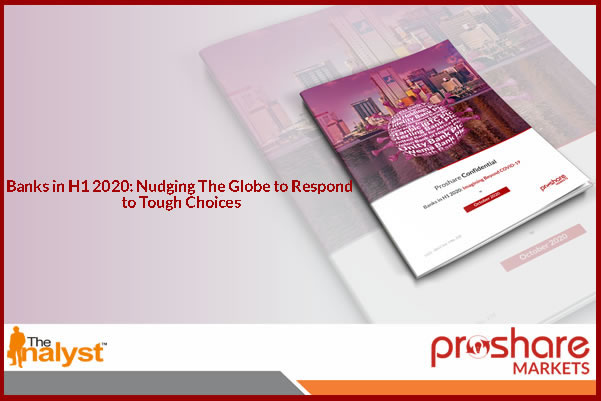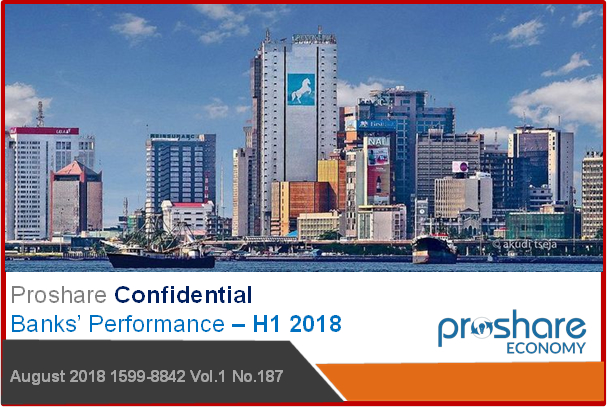Nigeria's e-Banking: The Hookup
But while the FCCPC gathers its thoughts on the pricing of digital financial services, the lending train appears to be moving along. Local banks have continued to push the digital payment and lending services hard and fast as e-banking revenues rise as a proportion of gross bank earnings.
For example, in the financial year 2021, FCMB recorded gross earnings of N212bn, of which N26bn or 12% came from its e-banking activities. FBNH came second on the chart with gross earnings of N427bn of which N42bn or 9.84% from its e-banking activities while UBA made gross earnings of N660.2bn with N64.6bn or 9.78% attributable to electronic banking activities of the bank. Access Bank came fourth in the e-banking-to-gross earnings log, with the bank posting gross earnings of N971.9bn and an e-banking income of N66.28bn or 6.82%.
At the other end of the table, Stanbic IBTC had the lowest e-banking income with 1.79% gross earnings of N206.64bn and e-banking income of N3.69bn at FY 2021. Second, from the bottom was Fidelity Bank, with gross earnings of N250.78bn and an e-banking income of N5.29bn or an e-banking income as a proportion of gross earnings of 2.11%. What analysts found a bit surprising was that GT Bank, despite steady growth in its retail banking operations in the last few years, saw its e-banking income as a proportion of its gross earnings crawl at a relatively slow 4.71%, with e-banking income of N21.08bn over gross earnings of N447.8bn in FY 2021 (see table 22 below).
Table 22: The Nigerian e-Banking Logbook in 2021
Analysts have noted that the 9M 2021 data of FBNH, despite the drama around the sacking of its Board of Directors and its hitherto unknown forbearance status with the Central Bank of Nigeria (CBN), was able to pull off an impressive e-banking revenue coup as one of the highest e-banking revenue to gross earnings ratios for the banks listed on the NGX, this may be explained by the Holdco's large and expanding agency banking network of over 86,000 agents across the country.
FBNH's agency banking operations appear to have been the hub of a fast-moving and aggressive service delivery wheel. Indeed, looking into the future, analysts believe that the holding company could strategically position itself to use its massive market data to provide open banking services that would increase its market penetration, broaden its gender inclusion, and refine its user experience and customer interaction (UX/UI) across new market segments. Analysts believe that increased adoption and deployment of artificial intelligence (AI) and machine learning (ML) could help the lender to derisk its loans and improve its non-performing lending assets (NPLs) as its loans-to-deposit ratio (LDR) rises. Of the thirteen (13) banks listed on the local stock market (NGX), the top tier banks had the lowest loans to deposit ratios in 2021, implying that they would likely have incurred large CBN penalties debited against their cash reserve ratios (CRR) for the year (see table 23 below).
Table 23: A Quick Look at Nigerian Banks 2021 NPLs and LDRs
Bridging the Present, Past, and Future
The old days of banking without sophisticated analytical tools had their strengths in that they required the development of individuals into behavioural analysts, accounting experts and subject matter industry specialists.
However, human beings with their foibles provide less reliable interpretation of data and are potentially influenced by sentiments and personal biases making the outcome of their decision-making less dependable. With artificial intelligence, machine learning and big data, the basis of preempting customers' needs and meeting their expectations becomes less arbitrary. Financial lenders in contemporary times can break down customer data into a series of reports that onion slice the needs of each customer given the constraints of the business environment and the future outlook of an industry. At an individual level, AI and ML will produce reports that would enable lenders to build services around the customer's experience journey and aspirations.
The new Nigerian financial lender is a cyborg with machines running complex and critical calculations to complement the banker's deep industry knowledge and unique customer insights. Today's financial service manager or banker will metamorphose further as data becomes broader and deeper and machines develop better analytical capabilities.
Downloadable Versions of Tier 1 Banks Report (PDF)
1. Executive Summary: Nigeria’s Banking Industry: The Case for Redefining Tier 1 Banks - May 28, 2022
2. Full Report: Nigeria’s Banking Industry: The Case for Redefining Tier 1 Banks - May 28, 2022
 Lagos, NG • GMT +1
Lagos, NG • GMT +1











 2915 views
2915 views


























 Sponsored Ad
Sponsored Ad
 Advertise with Us
Advertise with Us









